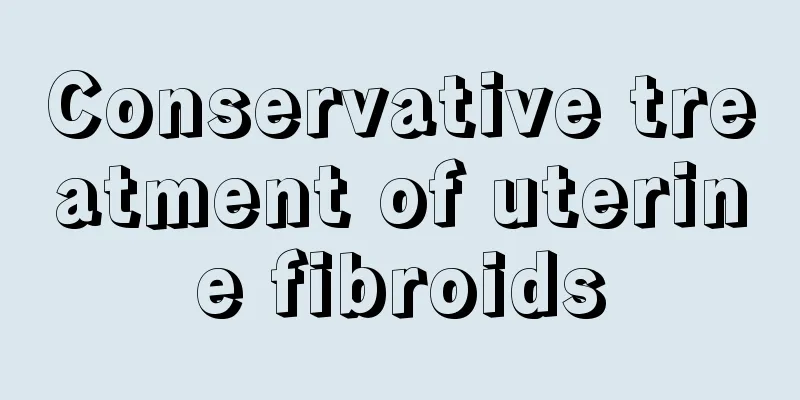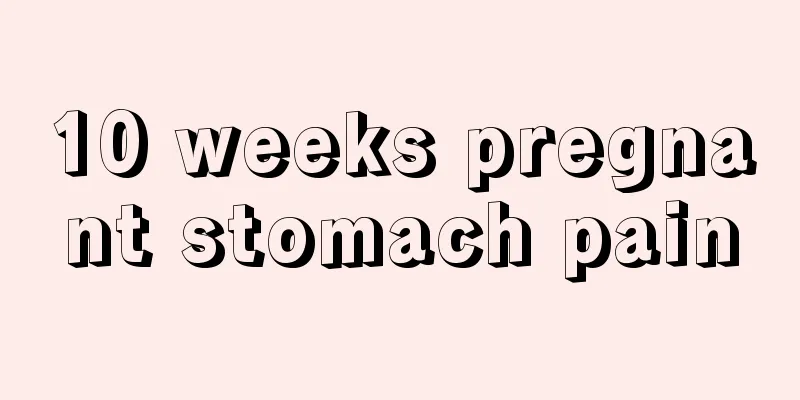Conservative treatment of uterine fibroids

|
More and more friends are making rapid progress in life. People's work pressure has become particularly high, causing great harm to the bodies of many female friends who already have low immunity. For example, common uterine fibroids are in the early and middle stages. Let me introduce to you how to use conservative treatment for uterine fibroids. The treatment of uterine fibroids depends on the patient's age, the presence or absence of symptoms, the location, size, growth rate, number of the fibroids, the deformation of the uterus, whether reproductive function is retained, and the patient's wishes. There are several ways to handle it. 1. Expectant treatment: The fibroids are small, asymptomatic, without complications or degeneration, and have no impact on health. For perimenopausal patients without clinical symptoms, it is considered that ovarian dysfunction may cause the fibroids to regress or shrink. All of the above situations can be treated with expectant management, that is, regular follow-up observations in clinical and imaging aspects (once every 3 to 6 months). The treatment will be decided based on the review results. Usually, fibroids shrink naturally after menopause, so no surgical treatment is required. However, women with fibroids who are over 40 and may still be several years away from menopause may also consider surgery. However, conservative drug treatment can be performed before surgery, and if the drugs are effective, surgery can be temporarily avoided. It should also be noted that in a small number of postmenopausal women with fibroids, the fibroids do not shrink but instead grow larger, so follow-up should be strengthened. 2. Drug therapy There are many new developments in drug therapy. 1. Indications for drug treatment 1. Young people who want to preserve their fertility. For women of childbearing age who suffer from infertility or miscarriage due to fibroids, drug treatment can shrink the fibroids and promote conception and fetal survival. 2. For premenopausal women, the fibroids are not very large and the symptoms are mild. After taking the medicine, the uterus will shrink and menopause will occur, and the fibroids will shrink accordingly, thus avoiding surgery. 3. Those who have surgical indications but currently have contraindications and need to be treated before surgery. 4. Patients with concurrent medical or surgical diseases who are unable to undergo surgery or are unwilling to undergo surgery. 5. Before choosing drug treatment, a diagnostic curettage and endometrial biopsy should be performed to rule out malignant changes, especially for those with menstrual disorders or increased menstrual flow. Curettage has both diagnostic and hemostatic functions. In daily life, if uterine fibroids appear, female friends should not worry or be nervous. Conservative treatment can be used to treat uterine fibroids. In fact, uterine fibroids do not require surgical treatment and can be treated conservatively. |
>>: Treatment of bronchial endometriosis
Recommend
8 common misunderstandings about home disinfection! Doing it wrong may cause harm
Disinfection is one of the effective ways to bloc...
Will I grow taller after my period?
Will I grow taller during my period? Every girl w...
What are the effects of joint pain during pregnancy?
During pregnancy, women usually experience varyin...
The blame for dizziness cannot be put on cervical spondylosis! A table clearly identifies the causes of dizziness!
丨The popular science topic of this article comes f...
How long does it usually take for menstruation to come after a miscarriage?
Abortion is quite common nowadays. Many female fr...
If the breasts don't swell, does it mean that there is no milk?
Many women experience breast failure during pregn...
This life-saving medicine, born in blood, saves tens of millions of people every year!
• Warfarin exerts its anticoagulant effect by inh...
Does constipation cause delayed menstruation?
Everyone's physical condition is different, s...
Can I get sick from taking a hot spring bath? Can I still take a hot spring bath?
Cold winter day Friends and family get together t...
How to dress fat girls to look thin
Dressing is a very important part of people's...
What is entropion? What are the dangers of entropion?
Rubbing eyes is one of the main reasons why almos...
Will infertility be listed as one of the three major diseases of mankind in the 21st century? Obesity is the direct cause?
Expert in this article: Wang Yi, attending physic...
Slight abdominal pain in late pregnancy
For pregnant women, the late pregnancy is a very ...
Latest research: Eating less can extend your life, but being thinner doesn’t necessarily mean you live longer…
A recent study has attracted a lot of attention b...
Can I eat golden cherry during menstruation?
In life, people generally use golden cherry as a ...









